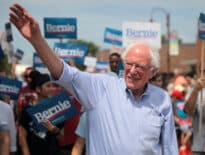After years of vital transit upgrades being stonewalled by the state House of Representatives, the transportation finance bill unveiled last week is a welcome development. But it doesn’t go far enough, and it’s up to the Senate to fix that.
We loudly cheer House Speaker Robert DeLeo and his leadership team’s efforts. Theirs was a tough job, and the House must be praised for its willingness to raise over half a billion dollars of new revenue after years of chanting “reform before revenue” even as the MBTA and other parts of the state’s infrastructure crumbled.
The House’s proposal to raise $500 million to $600 million per year pales in comparison to the $10 billion repair backlog on the MBTA and the state’s roads, bridges and tunnels, as estimated by A Better City last year.
DeLeo describes this bill as a “bridge” to the $1 billion that could be raised for transportation yearly by the so-called “Millionaire’s Tax” starting in 2023. But even then, that won’t be enough. To solve the problems threatening to derail Massachusetts’ major regional economies and to meet our climate change targets, most advocates say the state should be spending something closer to $50 billion over the next 20 years.
There are several doors opened by this bill, through which Senate President Karen Spilka and her colleagues should be more than happy to drag their House counterparts in search of this extra money.
To solve the problems threatening to derail Massachusetts’ major regional economies and to meet our climate change targets, most advocates say the state should be spending something closer to $50 billion over the next 20 years.
The most important is tolls. As of this writing, the House bill includes language setting up a study commission to examine whether or not to expand road pricing and report back by July 31, 2021. Roadway pricing is the “stick” to better transit service’s “carrot” for solving our carbon pollution and congestion problems. But given Beacon Hill’s tendency to study issues to death, the state needs a hard deadline for at least starting a pilot program to put the commission’s ideas to the test.
The Senate should also consider raising the gas tax not by the House’s 5-cent proposal, but by 10 or 15 cents. If voting to raise the gas tax will be a hard sell for many legislators, it makes little sense to incur such pain without maximizing the gain. A 10-cent increase, for example, would generate around $300 million more per year, and would still leave us below rates levied by our many of our neighboring states.
Given the complex politics of ensuring this bill benefits and is supported by voters from Pittsfield to Provincetown, DeLeo and his team have done a commendable job starting the conversation. Now that the House has put its initial offer on the table, it’s time for Spilka and her team to bargain them up to spending more in line with what’s actually needed.
Letters to the editor of 100 words or less may be submitted via email at editorial@thewarrengroup.com with the subject line “Letter to the Editor,” or mailed to the offices of The Warren Group. Submission is not a guarantee of publication.






